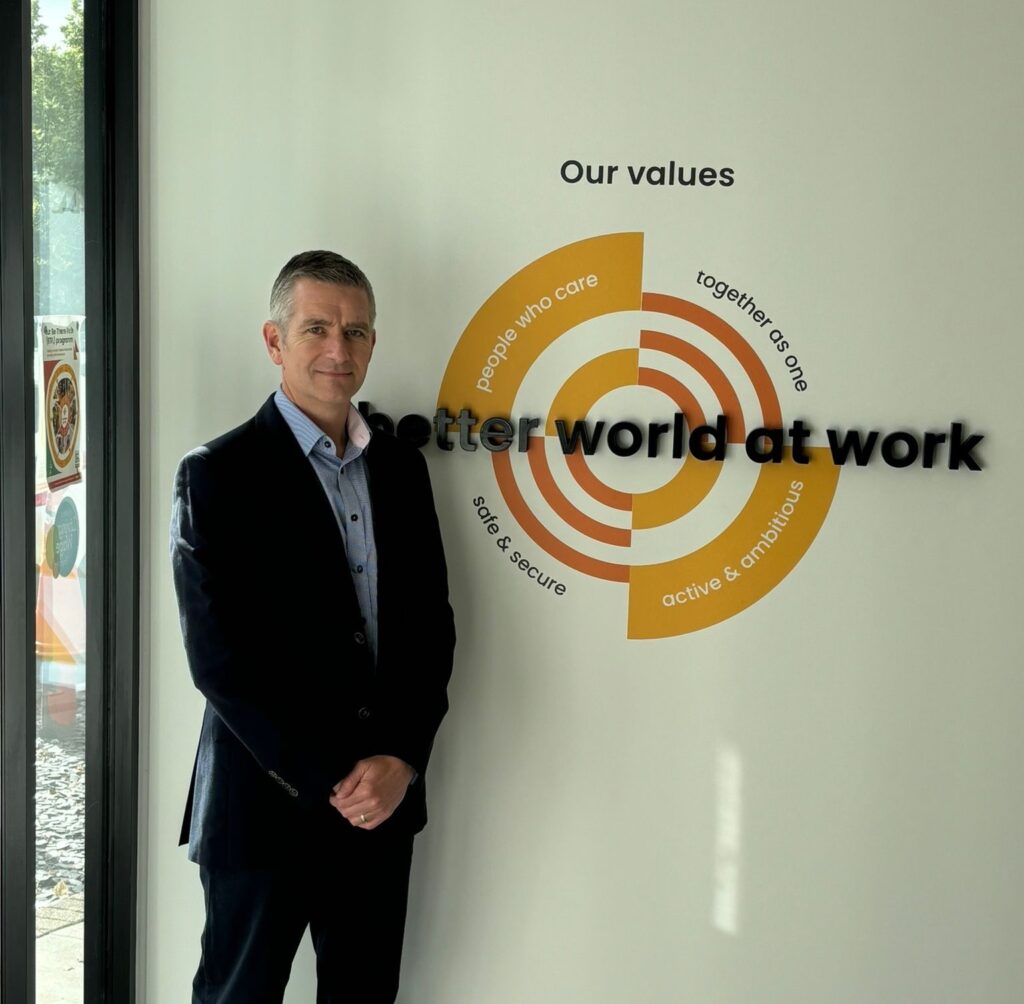FM organisations have many moving parts to balance. In the hard FM side of the industry, asset maintenance and upkeep, data-led business strategies and the route to net zero are all priorities for our customers. The specialist services we offer need to be streamlined and individually primed for customer collaboration, which is where Matt Kent, director of engineering, EMCOR UK and his team come in.
He tells us more here…
In July, I was appointed to the newly created role of director of engineering for EMCOR UK, to ensure engineering remains a central consideration for all areas of the business. I believe it is the golden thread that needs to be woven through all specialisms to draw every part of FM together, from technical experts to soft service specialisms, and breed collaboration and innovation.
I liaise with all areas of the business, from the CEO to frontline engineers. My team and I have begun the rollout on a multi-stage plan that further enhances our engineering services, and in the process, uplifts and streamlines other services too. That vision creates a strong structure for FM businesses and provides vital new upskilling opportunities for frontline engineers.
The importance of engineering
FM providers don’t just keep buildings running, they also help carve out the future for customers – for example, by assessing and setting their energy efficiency goals and mapping out routes to net zero. That often means using intelligent modelling tools so that customers can best understand their estates. Across our industry, services need to be aligned and primed for customer collaboration. Engineering is the key to unlocking these services’ full potential.
For example, an office that has changing patterns of office occupancy may need to adapt what assets run and when – like the air conditioning or lighting on days of minimal occupancy. This can also impact the wellbeing of the businesses’ employees. Without their basic needs met in the office, including good indoor air quality, productivity can take a huge downturn. That is where engineering comes in. Sensors can be implemented to measure and control what assets are in use, and for how
long, as well as informing their maintenance schedules. This data can then be collected and fed back into wider workplace strategies, like long-term decarbonisation goals.
Having the input of engineers from a strategic level is therefore integral to every stage of a customer’s business operations, so it should be integral for the FM providers too. Strengthening internal communication between different services, from data management to workplace wellbeing specialists, sets customers up for success across the board.
Prioritise internal communication
Defined roles, in-depth yet adaptive strategies and specialist committees are the best ways to keep different sector specialists in the loop. I believe that these elements should also underpin an ethos of engineering excellence, and within EMCOR UK, I plan to develop an engineering centre of excellence.
With this plan, my team and I have developed an engineering steering committee that will meet four times a year, along with a maintenance assurance and compliance working group that meets monthly. A strong plan of communication is the best way to ensure that an FM organisation’s strategies are flexible to changing market trends and responsive to changing customer needs.
Support engineer growth
These strategies need to involve frontline engineers. Too often, internal structures overlook the particular skill sets engineers have – their understanding of how equipment and systems need to be operated, maintained, diagnosed and repaired. That is why I take the time to make regular site visits, from data centre teams to IoT and technology specialists working on different customer sites, to understand the innovative work they are doing and new steps they are taking.
We need to improve training, recruitment and engineering retention throughout the industry. England needs 12,000 newly qualified electricians every year to meet increasing demands. The British Chambers of Commerce also reported that 82 per cent of construction and engineering businesses are facing recruitment difficulties.
Every engineer should know how to advance in the industry, and everyone who starts in a junior grade should be able to work up to a chartered engineer position, into different company branches, and managerial positions if they wish.
As a Chartered and Fellow Engineer working on leadership and company strategy, I can confidently say how engaging and challenging engineering is – it’s perfect for the curious mind. Our team needs to engineer the right things, at the right time, to the right standard, by the right person. That requires professional curiosity, trust and pride in the work of our engineers. The industry needs to create and showcase these opportunities far and wide, for the successful future of all FM services.





